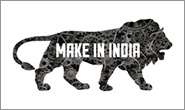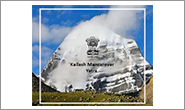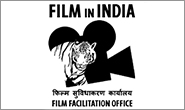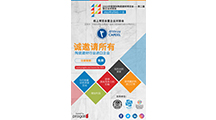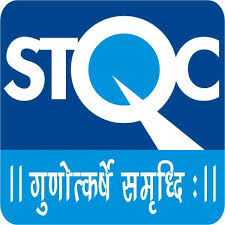Professor XieFuzhan, President, Chinese Academy of Social Science,
Ambassador Luo Zhaohui, Vice Foreign Minister of China,
Mr. Acquino Vimal, Deputy Chief of Mission, Embassy of India in Beijing,
Prof Wang Lei, Director General, Bureau of International Cooperation, Chinese Academy of Social Science,
Ladies and Gentlemen,
First of all I would like to thank Professor XieFuzhan, President of CASS, for your warm welcome extended to me and my delegation.
Today we commence our Fourth India-China Think-Tanks Forum which first started December 2016 at the historic SapruHouse in New Delhi. The Forum is a bilateral platform established by a Memorandum of Understanding between our two governments during the visit of Prime Minister Narendra Modi to China in May 2015. It has been our privilege and honourto be associated with such an important initiative.
We have had three meaningful and successful conferencesunder the aegis of the Think Tank Forum and other meetings as well with your leading think tanks in the past three years.
The previous three editions of the India-China Think Tanks Forum have highlighted the important role of think-tanks in enhancing India-China relations through meaningful dialogue, understanding and research. This has benefitted both countries and succeeded in building constituencies of support in both nations.
We have an agreed agenda for this Think-Tanks Forum meeting. We wish to discuss three important aspects of our relationship
- Building Closer Developmental Partnership between China and India;
- Development Strategies and Experiences in China and India; and
- Communication and Mutual Learning between Chinese and Indian Civilization
We are delighted to have so many experts and stakeholders from both sides amongst us and I look forward to the discussions we will have here today.
As the two economic powerhouses of Asia,India and China, arenot only the key drivers of the economic emergence of Asiathat heralds an Asian century butare also central to redefining the global economic order.
However, the emergence ofan Asian centurytoneeds not only sustained economic growth by countries in the continent, but also the evolution of a shared vision, common values and a culture that aims at peace and stability and forges integration across the continent.
To this end itis pertinent that the two big powers of the continent, India and China, maintain multi-dimensional relationships, assist smaller powers in their own national rejuvenation and play significant roles not only in integrating regional economies but in generating shared perceptions on security.
Clearly, India and China share global interests as well as regional ones. They have a common interest in the rise of a multipolar world order and the democratization of the international trade and financial system as well as the global energy market.
The two countries have demonstrated their ability to cooperate effectively in the Asian Infrastructure Investment Bank (AIIB), where India is nowthe second-largest investor after China. They also share common interests in strengthening cooperation under the frameworks of BRICS, the Shanghai Cooperation Organization and the Group of Twenty (G20).
With growing US unilateralism, rising protectionism in developed economies and thecrisis in multilateral institutions,during a slowdown in the global economy, , it is critical that these two countries deepen their cooperation bilaterally as well as globally.
As globalization gives way to regionalism, and Asia takes a leading position in many multilateral institutions, India and China could tap many of the opportunities arising out of the region’s rapid integration and shifting networks and flows to help drive the next chapter of their growth.
India and China are the only two countries in the world with a population of more than one billion each andare faced with the urgent taskofproviding a sustainable livelihood for theircitizens. In addition, while they need to find innovative ways to provide better opportunities for their peoples, they also need to address the growing environmental challenges that threaten internal stability and the aspirations of theircitizens. The focus on development and cooperation, hence, isone we can no longer ignore.Cooperation and exchanges in these areas of development can only occurif our respective governments facilitate and encourage people to people understandings and interaction. This last has already been written into agreements by both countries.
The establishment of the high Level Mechanism on Cultural and People-to-People Exchanges was an important outcome of the Wuhan Summit. The first meeting of the HLM was held in December 2018 in New Delhi. The second meeting of HLM on Cultural and People-to-People Exchanges was co-chaired by EAM Jaishankar and Foreign Minister Wang Yi on August 12, 2019 in Beijing. The two rounds of HLM has reflected the desire of the two countries to broad-base the relationship through enhanced exchanges in areas such as culture, art, tourism, media, films, sports and scholarship, including through think-tanks and youth exchanges.
ICWA, for one, has also been a significant participant in the India-China high level mechanism on cultural and people-to -people exchanges.
In our discussions with CASS, we both strongly favoured meaningful inter-sessional activities and ICWA hopes to coordinate an event in Delhi with participation by CASS on themes such as ‘World Economics and Politics’.
ICWA is also furthering joint research programme with CASS which would include short visits of scholars from the two sides. This is expected to provide useful outcomes for research and policymaking in both the countries.
As you are aware, India and China have charted a year-long celebration to mark the 70th anniversary of their diplomatic relations beginning from April 2020. It is logical that both countries have decided to designate 2020 as the Year of India-China Cultural and People to People Exchanges. ICWA will be organising a number of events to mark this milestone in our bilateral relationship.
The second informal summit between PM Narendra Modi and Chinese President Xi Jinping in Chennai recently has further strengthened the bond between the two Asian giants.The ‘Chennai Connect’ marks the beginning of a new era in cooperation between India and China.
After the Chennai informal summit, the two sides announced the setting up of a high-level economic and trade dialogue mechanism to discuss issues related to trade imbalances, investment, and services. The high-level trade-centric mechanism has raised hopes in India thatthe issues of the galloping trade deficit between the two countries and market access related challenges that Indian goods face in Chinese markets will be addressed at the very top level of decision making. It is expected that the new mechanism on economic issues will be able to achieve mutually agreeable solutions in due course.
The two transformational leaders of both nations have responded to unique national problems with a new development paradigm and view of the world order.
****



















